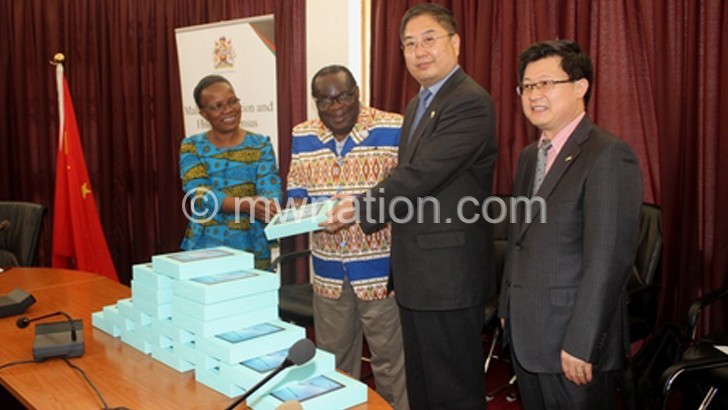NSO urges people to embrace census
The National Statistical Office (NSO) has asked Malawians not to miss out in the forthcoming 2018 Population and Housing Census, saying it is their right to be counted.
NSO commissioner of statistics Mercy Kanyuka made the call on Friday in Lilongwe on the sidelines of the handover of 20 tablets worth K4.3 million for use during the census from China to Malawi on Friday.

She said: “The census is a very important exercise and it targets everyone, from the newly born to the oldest members of society. So, everyone is obliged to take part.”
Kanyuka stressed that the census is critical for Malawi because it helps inform and guide policy and development.
She said: “This is more than just knowing how many we are in this country. For example, Ministry of Health uses this information to plan on how many children need immunisation in a particular area and they send support accordingly. Similarly, the Ministry of Education uses this information to map out areas in need of more schools and so on. These are just a few examples of how the census helps in a country.”
Speaking during the handover held at the Ministry of Finance, Eonomic Planning and Development headquarters, Chinese Ambassador Liu Hongyang said his government cherishes the relationship it has with Malawi; hence, supporting the country’s development.
“This exercise is very important for the development of Malawi and I believe these tablets will help ensure that the census is effective and fast,” Liu said.
In his remarks, Finance Minister Goodall Gondwe hailed the Chinese Government for the donation.
“These tablets have come at an opportune time and will help a lot in the massive exercise we have ahead of us,” he said.
According to United Nations estimates, Malawi currently has about 19. 2 million people which translates to a population density of 203 people per kilometre.
The country’s population is growing rapidly at three percent with a projection of hitting 45 million by 2050.





